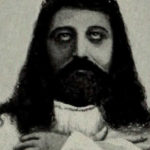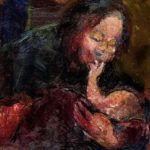We run our website the way we wished the whole internet worked: we provide high quality original content with no ads. We are funded solely by your direct support. Please consider supporting this project.

How People Misunderstand Open Theism
Open theism holds that, because agents are free, the future includes possibilities (what agents may and may not choose to do). Since God’s knowledge is perfect, open theists hold that God knows the future partly as a realm of possibilities. This view contrasts with classical theism that has usually held that God knows the future exclusively as a domain of settled facts. There are no “maybes” for God.
The debate is not about the scope and perfection of Gods’ knowledge, for both open theists and classical theists affirm God’s omniscience. God always knows everything. The debate, rather, is about the content of the reality God perfectly knows. It comes down to the question of whether or not possibilities are real.
I’m always puzzled as to why many defenders of the classical theism spin the debate with open theists as a disagreement over the perfection of God’s knowledge. For example, they publish books with titles like How Much Does God Know? (Steven Roy) and What Does God Know and When Does He Know It? (Millard Erickson). Since open theists believe God always knows everything, why do they continue to argue as if we don’t?
Part of the explanation, of course, may be simple propaganda. My sense is that, while spinning the debate as about God’s knowledge rather than the nature of reality certainly is advantageous for the purpose of propaganda, the critics who argue this way also seem to sincerely believe what they’re saying. How can this be?
While researching some ancient philosophers who influenced theologians like Augustine and Boethius, I uncovered something that may help explain this curious phenomenon. Let me briefly explain.
First, Plato argued that we see not by light entering our eyes (as we now know is the case) but by light proceeding out of our eyes (Timaeus 45b). For Plato, seeing is an active, not a passive, process. Since knowledge was considered to be a kind of seeing, Plato also construed knowing as acting on something rather than being acted upon (Sophist 248-49). I’ve discovered that this mistaken view of seeing and knowing is picked up and defended by a host of Hellenistic philosophers.
Second, several Neoplatonistic philosophers (Iamblichus, Proclus and Ammonius) used this theory of eyesight and knowing to explain how the gods can foreknow future free actions. They argued that the nature of divine knowledge is determined not by what is known but by the nature of the knower. Since they assumed the gods were absolutely unchanging, they concluded that the gods knew things in an absolutely unchanging manner, despite the fact that the reality the gods know is in fact perpetually changing. This allowed them to affirm that the future partly consisted of indefinite (aoristos) truths (viz. open possibilities) while nevertheless insisting that the gods knew the future in an exhaustively definite, unchanging way.
The view is, I’m convinced, completely incoherent. But one can understand how these philosophers arrived at it in light of their mistaken assumptions about seeing and knowing as wholly active processes. What the gods see when they look at the future conforms to the unchanging nature of the gods rather than the changing nature of the future they see. Through the influence of Augustine and especially Boethius (who explicitly espoused the ancient view of seeing and knowing and repeated some of the Neoplatonic arguments), this way of “reconciling” foreknowledge and free will quickly established itself as the dominant view in the Christian tradition.
And it is, I suspect, this same mistaken tradition that at least in part explains why many contemporary defenders of classical theism today instinctively assume the debate over open theism is a debate about the nature and perfection of God’s knowledge rather than a debate about the nature of the future.
Once we abandon the ancient view of seeing and knowing as active processes, it becomes clear that God’s knowledge is perfect if, and only if, it perfectly conforms to the nature of what is known. So if possibilities are real, then God’s knowledge is perfect if, and only if, God knows them as possibilities. Contrary to what critics of open theism claim, open theists affirm that God always knows everything perfectly. It’s just that we have reason to believe a partly open future is part of what God perfectly knows.
Image by SortOfNatural via Flickr
Category: General
Tags: Calvinism, Divine Foreknowledge, Free Will, freedom, Future, Open Future, Open Theism
Topics: Free Will and the Future, Open Theism What it is and is not
Related Reading

How Calvinism Misses the Point About Salvation
Calvinists sometimes argue that various passages in John teach that the Father chooses and then “draws” certain people to Christ. Those who are “drawn” certainly come to Christ (John 6:37) while all who are not drawn remain in their sin. For example, John portrays Jesus as repeatedly teaching that “no one can come to me…

God Clearly Can, So Why Doesn’t He? (podcast)
Leah expects more from God. Should she? Greg confronts God’s inactivity and underperformance. Episode 510 http://traffic.libsyn.com/askgregboyd/Episode_0510.mp3

How Can Salvation by Grace Involve Free Will?
How does salvation by grace work if people have free will? If salvation hinges on whether individuals choose to be saved or not, is salvation based on grace or works? If we have to choose for or against God, then doesn’t the credit for our salvation ultimately go to us? Along the same lines, doesn’t…

Some Questions a Year After Her Child’s Death
Jessica Kelley wrote a post for The Jesus Event that we wanted to share with you. You might remember that last year we were getting to know Jessica as she lost her four year old son Henry just before Christmas. In this post, she reflects on the theology of the people around her concerning her son’s death. She has…

The Incarnation: More Than a Rescue Mission
A mistake people often make concerning the Incarnation is that they fail to distinguish the eternal plan of God to unite himself with humanity in Christ, on the one hand, from the atoning significance this plan acquired after the fall, on the other. Some therefore think of the Incarnation as a sort of “Plan B”…

How do you respond to 1 Peter 1:1–2?
As I read it, I Pet 1:2 is the thematic statement for the whole chapter. As I will show in a moment, the rest of the chapter unpacks this statement, so the rest of the chapter should be used to interpret this statement. In the rest of the chapter we find that believers… * have…
